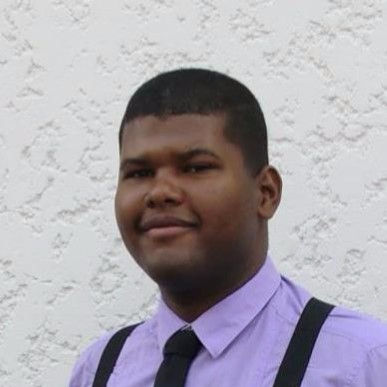CIE Researcher of Distinction, February 2014
Ramon Fernandez
Each month, the Center for Inclusive Education showcases the outstanding research being conducted by one of our talented scholars in our Research Cafe series. In addition, we recognize this scholar as a Researcher of Distinction and share the details of their journey to becoming an accomplished scholar. This month's Researcher of Distinction is Ramon Fernandez, a Ph.D. student in the Department of Technology and Society. Ramon presented his talk, "New York State Mathematics Regents Exams: An Analysis of High Minority and Low-Achieving Public School Districts" on Thursday, February 6, 2014.
Ramon's Path Into Research
Ramon was born in Bonao, a small town of the Dominican Republic, which is also known as Villa de las Hortensias, which means the villa of red hydrangea. He grew up in Bona until he was 13 years old. He then moved to Santiago de los Caballero (Santiago of the Gentlemen) and at age 17 he moved to Inwood, Manhattan.
He went to the Industrial Polytechnic Institute of Santiago for high school, where he graduated from with both a high school diploma and an Associate of Applied Science Degree in Industrial Electronic Engineering. The school provided a solid foundation for higher education, especially in STEM. Since his sophomore year, he became the student council’s president and was then re-elected until graduation. He became the president of his division (Electronic Engineering) during his junior year and he worked hard to ensure that all the students in his cohort graduated.
For his final group project, he worked on creating a traffic light. Using Programmable Logic Controls (PLC), his group was able to design and implement an algorithm to control the lighting sequence such that the green color flashed for 5 seconds before it went to yellow, signaling drivers that they should be cautious.
Ramon began his undergraduate career at CUNY’s Bronx Community College. He then transferred to Stony Brook University where he graduated with honors, earning a B.S. in Mathematics and a B.A. in Hispanic Languages. He was a Golden Key International Honor Society Member for being ranked top 15% of my class in 2008. He was also a recipient of the Computer Science, Mathematics and Engineering (CSEM) Scholarship.
He became interested in research when he did his first internship at Brookhaven National Laboratory (BNL) in the summer of 2005. He discovered the concept of research and did his first research paper. Two subsequent internships led him to becoming more heavily involved in research. Those internships became the bedrock of his subsequent interest in science. In 2008, he had the opportunity to serve as a teaching assistant for BNL’s STEM-Prep Summer Institute. This experience allowed him to interact with ethnically underrepresented students, which has served to inform his research.
Outside of his academic interests, Ramon is very passionate about dancing. He also enjoys reading, spending time with his friends, and trying different types of ethnic foods.
Ramon's Current Research
Describe the work you will be presenting for your Research Café.
In the Research Café, I will be presenting on my research about the New York State mathematics exams and what the scores of public high schools from The Bronx can tell us about the educational attainment of students in these geographical are of New York City.
Are there any other projects that you are currently working on?
Yes. Right now I am conduction a mix methods (qualitative and quantitative) review of the impact of advanced high school mathematics courses on students’ access, retention and graduation in higher education.
What was the deciding factor for you to come to Stony Brook for your graduate studies?
In a nutshell, I was offered the Turner fellowship with boosted my economic support to a degree that was just enough for me to get by. The economic, mental, collegial and all kinds of support that the CIE has offered to me has been invaluable and a deciding factor in my tenacity and stubbornness to complete my Ph.D.
What are your future goals?
I want to have a direct impact on ethnically underrepresented and economically disadvantaged communities. I believe that becoming a high quality mathematics and social science educator and research will help me accomplish my goals. An immediate and continuous goal of mine is also to become happier and to help to understand and make empathy with those whom I love.
What do you enjoy most about research?
Getting my results.
